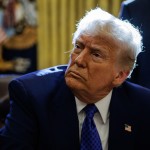By Eliza Ronalds-Hannon
While echoes of the horsemeat scandal still bounce around Europe, we would all do well to look back at an instructive precursor that has only recently been fully exposed.
In the summer 1981, California food inspectors noticed that frozen beef imported from Australia didn’t look quite right; it was stringy and too dark. Tests showed the “boneless beef” was in fact horse meat, and inspectors nationwide soon discovered that horse, donkey, and kangaroo meat were all being exported from Australia to the US labeled as beef.
Australian suppliers were also selling the counterfeit meat locally, and by August the scam had turned into a full-on scandal there. The Australian Prime Minister called for an investigation in to the industry, and the results were published in September, 1982.
But part of the report was sealed, and remained so for almost thirty years since then, despite Australian journalist Jack Waterford’s attempt to access the document through a Freedom of Information Act request back in December 1982, on the very first day the FOI Act went in to effect.
Finally this past November, after Waterford filed another FOIA request which the government spent 14 months deliberating, the Australian government released appendix H of the royal commission, the formerly-sealed section of the report.
Appendix H, which Waterford describes as the brief given to the Australian Federal Police and the Commonwealth Director of Prosecutions once the investigation wrapped up, revealed that the scam was by no means limited to low-end meat industry players. Instead, it involved major meat companies as well as state and federal inspectors and federal police who had been “bribed and compromised” in their enforcement duties.
So it was quite short-sighted for the public to believe claims, when this year’s British scandal first broke, that the blame was limited to rural Romanian producers. Of course complicity stretched further up the chain.
And indeed, that’s what our investigation and others’ have since proven. OCCRP found that the horsemeat scam was perpetrated by a complex and established network of companies and off-shore tax havens all over Europe, including Draap Trading, a Cyprus-based British Virgin Islands-established company that exemplifies the type of players so often at the root of these profitable organized frauds. Draap bought over 350 tons of horsemeat last year, and sold them to a French company it hooked up with at a Paris food fair.
While the temptation to reduce this unpleasant specter to a small player on the EU’s periphery is understandable, it is not logical. Time and again, OCCRP’s investigation have shown that it is not shady, small-time criminals but sizeable and wealthy corporations who are behind the scenes of organized crime and corruption.
Perhaps the next time such a scandal hits, we will have learned our lesson, and we’ll look directly to mystery-shrouded, deliberately unknowable companies like Draap for answers.


